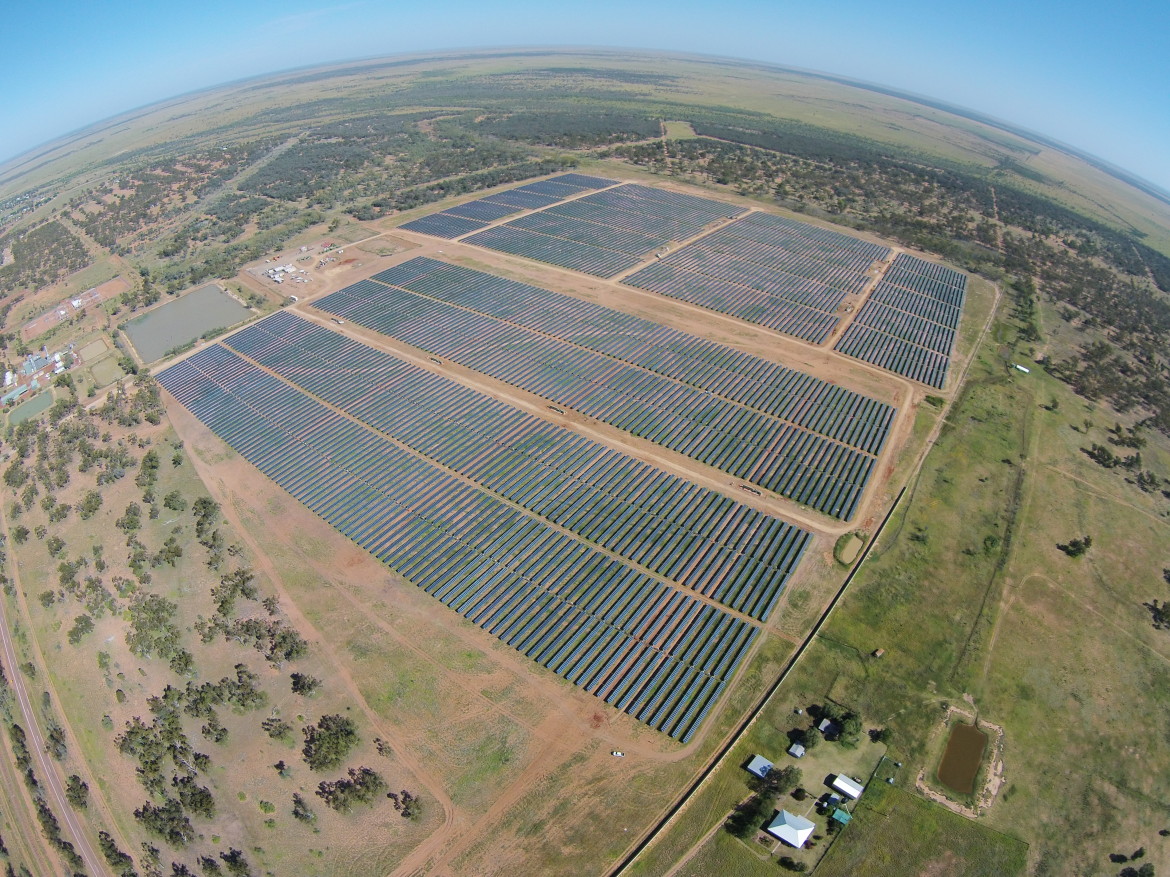The Queensland government has fast-tracked new regulations for the construction of solar projects, sparking fierce criticism from the CEC, Australia’s peak body for the clean energy industry. Under the state’s new code of practice, only licensed electricians will be allowed to mount, locate, fix or remove solar panels in any installation with a total rated capacity of at least 100 kW.
Queensland Industrial Relations Minister Grace Grace said the new regulations have been put in place to enhance safety standards in the growing commercial solar industry. The new code of practice is set to become law on 13 May and will cover all solar farms in the state.
“These new regulations are all about ensuring we keep pace with new and emerging technologies and keep workers safe,” Grace said, noting that stakeholders have expressed concerns about the hiring of unlicensed workers such as backpackers to mount and remove live solar panels. “Solar panels generate power as soon as they are exposed to light and cannot be isolated while they are being mounted. Workers are at risk from electrocution and fires if solar panels are not properly earthed during installation. Removing panels can be even more dangerous. These are not jobs for unlicensed workers.”
Claiming that the new regulations were introduced suddenly by the state government without clear justification or extensive consultation with the solar industry, the CEC has warned that the new code of practice could cost local jobs and slow the rollout of large-scale solar.
“It’s the equivalent of a homeowner having to call an electrician as soon as they’ve unpacked a new television from the box, in order to hang it on the wall. There is zero electrical work involved in this task and as such there is no need to require an electrician to do it,” said Anna Freeman, the CEC’s director of energy generation. “Our industry recognises the need to put safety first in everything that we do. Were there a genuine electrical safety risk presented by someone bolting an unconnected solar panel to a frame, we would be a very willing partner in implementing changes to protect the safety of workers.”
According to the CEC, an additional 45 electricians would be required under the new rules to build a 100 MW solar project. With over 3,200 MW of solar capacity now under construction or financially committed, this could mean as many as 1,450 additional electricians that could be needed at short notice.
“It’s unlikely that such large numbers of sparkies will be found in the small regional and rural centres where these projects are usually located,” Freeman said. “So, it will result in fewer jobs for locals on new clean energy projects, more fly-in, fly-out workers, and increased pressure on the availability of electricians throughout Queensland.”
The rules could also hurt the profitability of big PV solar developers, as they are already facing issues with the grid, project delays and political uncertainty. Higher costs will also come on top of variations in the proposed Marginal Loss Factors (MLFs) for 2019/2020, which are threatening to make a major dent in utility-scale PV project revenues, particularly in northern Queensland, northwestern Victoria, and western and central New South Wales.
The Electrical Trade Union has levelled sharp criticism against the CEC, describing its reaction to the state’s “sensible” new safety code as “overheated and hysterical.”
“We the ETU have been on the front foot raising the issues about the dangers of using unlicensed workers such as backpackers and other unskilled workers on these farms,” said Peter Ong, state secretary of ETU Queensland. “It was literally like the wild west where workers were picked up from backpackers and driven to the sites similar to a mango or banana farm, it was an accident waiting to happen.”
Ong also warned that a failure to tighten safety standards with the help of the safety code could lead to further problems in the industry, similar to the collapse of RCR Tomlinson, which he said was “trapped in a race to the bottom on costs.”
But the CEC maintains that the Queensland government should rethink the new rules, arguing that there are other options on the table.
“The process has been rushed and poorly communicated and should have progressed through a proper regulatory impact assessment process, as per the government’s own guidelines for regulatory change,” Freeman said. “Other solutions which should have been considered include a system where a single licensed electrician supervises a team of workers, which is the case in the rooftop solar industry.”
This content is protected by copyright and may not be reused. If you want to cooperate with us and would like to reuse some of our content, please contact: editors@pv-magazine.com.









By submitting this form you agree to pv magazine using your data for the purposes of publishing your comment.
Your personal data will only be disclosed or otherwise transmitted to third parties for the purposes of spam filtering or if this is necessary for technical maintenance of the website. Any other transfer to third parties will not take place unless this is justified on the basis of applicable data protection regulations or if pv magazine is legally obliged to do so.
You may revoke this consent at any time with effect for the future, in which case your personal data will be deleted immediately. Otherwise, your data will be deleted if pv magazine has processed your request or the purpose of data storage is fulfilled.
Further information on data privacy can be found in our Data Protection Policy.